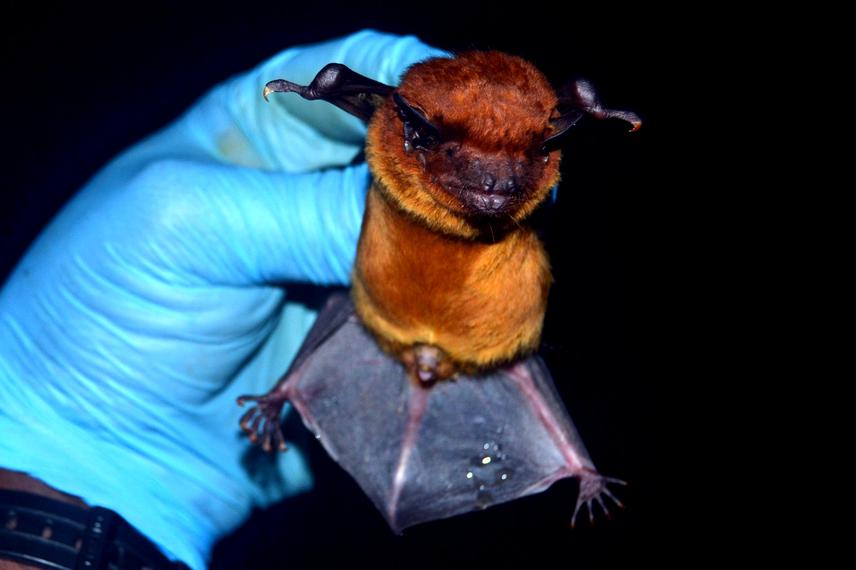Evans Ewald Nkrumah
Other projects
19 Apr 2017
Surveying for Ghana’s Critically Endangered Robbins House Bat in Eastern Ghana
The Robbins' house bat is a tropical rainforest species that is categorized as Data Deficient by the IUCN. Currently, it is known to inhabit Ghana and Ivory Coast, with Ghana hosting nearly 95% of the recorded individuals. However, this species faces imminent threats from habitat loss due to deforestation and illegal activities within Ghana’s Forest Reserve, particularly at Pra-Anum Forest Reserve.

Target species, Scotophilus nucella. ©Evans Ewald Nkrumah.
This project addresses these urgent threats by empowering local communities to actively participate in the conservation of the Robbins' house bat. Through a series of targeted activities, community members will be equipped with the knowledge and tools necessary to monitor bat populations and advocate for their protection. Citizen science training programs will transform local residents into ambassadors for bat conservation. They will collect data on bat populations using bat detectors such as audiomoths, contributing valuable scientific data. The project will also increase in-country bat expertise by providing hands-on training to university students in bat research and conservation.
Beyond monitoring, the project emphasizes habitat restoration by aiming to plant 2,000 trees, directly addressing habitat degradation and creating a more sustainable environment for the bat populations. Educational campaigns will raise awareness about the vital role bats play in the ecosystem, dispelling negative perceptions and encouraging a culture of appreciation among the young and adult alike in the region.
The anticipated outcomes of this project are multi-faceted. The project will create a future where local communities actively champion the conservation of the Robbins' house bat. By educating and empowering them with knowledge, the project creates a sense of community responsibility for biodiversity conservation, particularly for bats and secure their long-term survival. Additionally, the project will generate valuable scientific data on bat populations within the Pra-Anum Forest Reserve, contributing to a broader understanding of its ecology. Ultimately, the success of the project lies in its ability to enhance community participation in biodiversity conservation, particularly the Robbins’ house bat, advancing a future where both humans and bats can thrive.